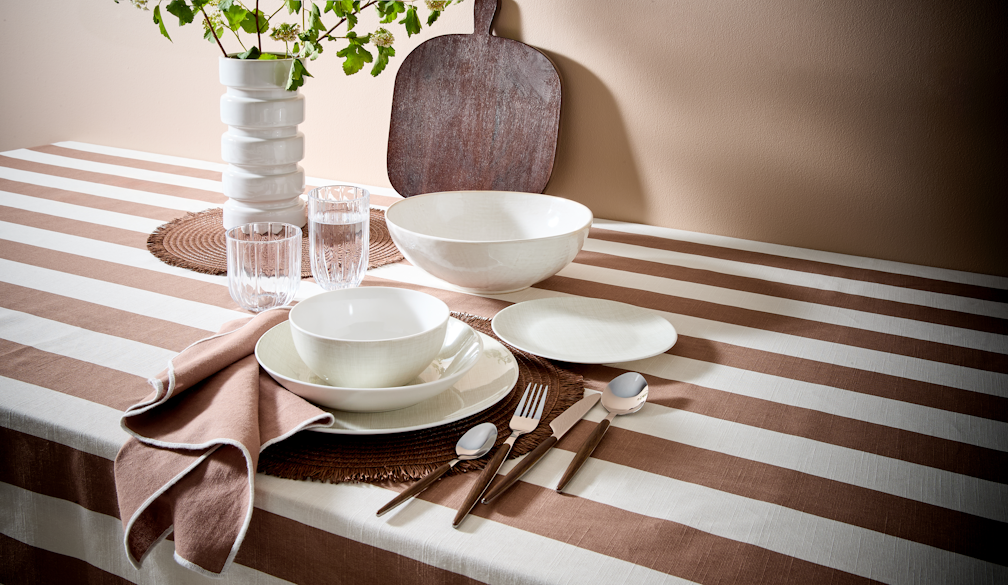SHOP 2026’s HOTTEST HOME TRENDS AT LOW PRICES WITH KMART’S FEBRUARY LIVING COLLECTION
- Written by Times Media

Kmart’s fresh new February Living range brings affordable style to every room, showcasing an inspiring edit of on-trend furniture and home essentials that prove great design doesn’t have to come with a high price tag. Starting from just $1.75, the collection combines functional simplicity, natural textures and versatile styling to make refreshing your home effortless, whether you’re updating a single corner or refreshing your entire space on a budget.
With more standout furniture pieces than ever before, they are designed to mix and match across rooms, making it easy to create a cohesive, layered look that feels modern, warm and uniquely yours. Available now in-store, online at Kmart.com.au and via the Kmart app, even more new styles will land over the coming weeks, so get in quick before they’re gone.
Kmart’s Merchandise Director, Meryn Serong, explains: “This year’s February Living range puts Australians ahead of home trends, with everything from statement furniture items to decorative accents from as little as $6. Our Melbourne design and buying team took inspiration from global trends to deliver a more refined, modern aesthetic that still allows for bold styling moments. A mix of rich hues in deep chocolates, rich blues and muted greens, have been grounded in earthy, neutral undertones to make them ideal for both subtle updates and standout looks.”
Key home styling trends for 2026 include:
Chic accent pieces in chocolate and chrome
Earthy luxury meets modern cool when chocolate and chrome come together! The combination of plush textiles, statement furniture, or small metallic details, chocolate and chrome are the perfect pairing to instantly refresh any space with a modern touch. Stand out items in the range include the Chrome Look Vase ($10), the chrome frame Aleks Lounge Chair ($99) and the Nico Portable Rechargeable Lamp ($19) in chrome and chocolate colourways.
Luxe finishes for on-trend style
Elevate your space with furniture featuring a range of stylish finishes, from walnut-look timbers and washed oak tones to textured stone-effect surfaces. Key pieces include the Hazel Bedside Table ($65) and Hazel 3 Drawer Chest of drawers ($115), which combine textured travertine-look finishes with curved 3D forms for a modern, luxe feel.
Statement shapes and surprising textures
Big shapes, bold details! Statement chairs, modular sofas and tactile fabrics like chenille and velvet make a statement this season, bringing both comfort and character to every space. Key pieces include the on-trend Asker Chenille Chair ($155), the Aleks Velvet Ottoman ($39) and the Goldie Compressed Chair ($155) that shoppers are already raving about on social media.
Everyday essentials
Chores meet charm! Practical essentials are now available in wood, metal and ceramics making laundry and cleaning feel a little less like work. Affordable, useful and slightly indulgent, with prices starting from just $4.
Although interior fanatics are already buzzing about the collection on socials, more must have items are still set to drop in the coming weeks including furniture stand outs with the Aleks Occasional Chair ($85), the Henry Set of 2 Dining Chair in olive and grey ($119) and the Lani Stripe Lounge Chair ($199).
Budget-savvy shoppers will love the extensive range of trending items under $10 including the Glass Trinket Box ($6) and the collection of new Glass Candles in pistachio and port ($7) to add flair to any corner of the home.
Shop the February Living range at your local store, online at www.kmart.com.au or via the Kmart app while stocks last.

















